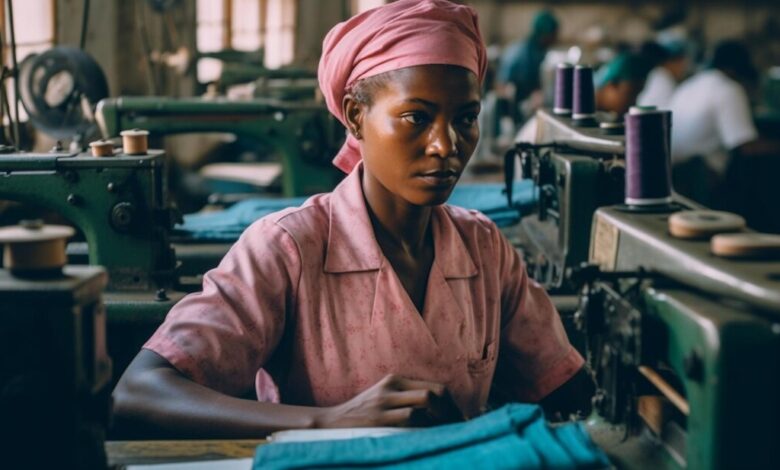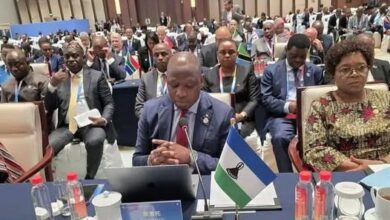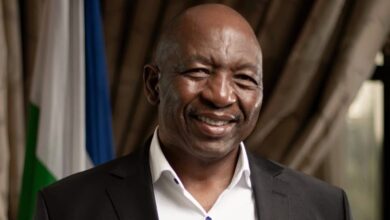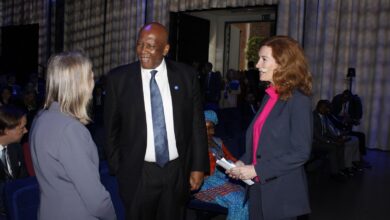New U.S. Tariffs Threaten Lesotho’s Textile-Driven Economy

Lesotho was recently hit with some of the highest tariff rates on record when U.S. President Donald Trump announced a 50% tariff on imports from the Kingdom. This decision comes at a critical time for Lesotho, whose economic stability relies heavily on the textile sector and trade benefits provided by the African Growth and Opportunity Act (Agoa).
A Disproportionate Trade Relationship
In 2024, the U.S. imported goods worth approximately $237.3 million from Lesotho, compared to a mere $2.8 million in U.S. exports. With nearly 75% of Lesotho’s U.S. exports consisting of clothing, the imposition of these tariffs is set to disproportionately affect its textile industry—a vital economic pillar. The significant disparity in trade figures underscores how dependent Lesotho is on its exports to the United States, which alone account for more than 10% of its annual national income.
Impact on the Textile Industry and Agoa Benefits
Lesotho’s textile industry, which has long been a beneficiary of Agoa, supplies major U.S. brands such as Levi’s and Wrangler. The tariffs not only risk undermining this crucial trade channel but also threaten the broader benefits derived from Agoa, potentially eroding the competitive advantage that Lesotho has enjoyed in the U.S. market. The extra costs imposed on American buyers may lead to a reduced demand for Lesotho’s textiles, significantly impacting production levels and overall economic growth.
Industry Experts Sound the Alarm
International trade lawyer Colette van der Ven told the BBC that the 50% tariff “makes little sense logically.” Such an extreme tariff level could drive U.S. buyers to seek alternative suppliers with lower costs, directly affecting Lesotho’s export revenue. Given that the current value of U.S. trade represents a substantial portion of the nation’s income, any reduction in demand could have a cascading effect on the country’s economic well-being.
A Big Threat for a Small Economy
For a small economy like Lesotho’s, the imposition of these tariffs is not merely a trade inconvenience—it represents a severe economic threat. The additional costs are likely to curtail U.S. demand for Lesotho’s textiles, which could lead to job losses, reduced production, and broader economic contraction. The situation is particularly alarming considering that this single trade relationship accounts for over 10% of the country’s total annual income.
Looking Ahead
The new tariff regime poses a challenging dilemma for Lesotho. While the tariffs are intended to protect U.S. economic interests, their impact on a vulnerable economy like Lesotho’s could be profound. As American buyers face higher prices, Lesotho’s future in the U.S. market remains uncertain. The government and industry leaders will need to explore strategic alternatives—whether diversifying export markets or negotiating tariff adjustments—to mitigate the adverse effects of this policy shift.
In summary, the high tariffs imposed by the U.S. represent a double-edged sword: while they may serve broader geopolitical goals, they risk destabilizing a key sector of Lesotho’s economy and jeopardizing the livelihood of those dependent on the textile industry. The coming months will be critical as Lesotho navigates these turbulent economic waters.
Streamlined for clarity and impact, this article underscores the urgency of rethinking trade strategies to safeguard Lesotho’s economic future.
Join 'Lesotho News' WhatsApp Channel
Get breaking Lesotho news — delivered directly to your WhatsApp.
CLICK HERE TO JOIN



